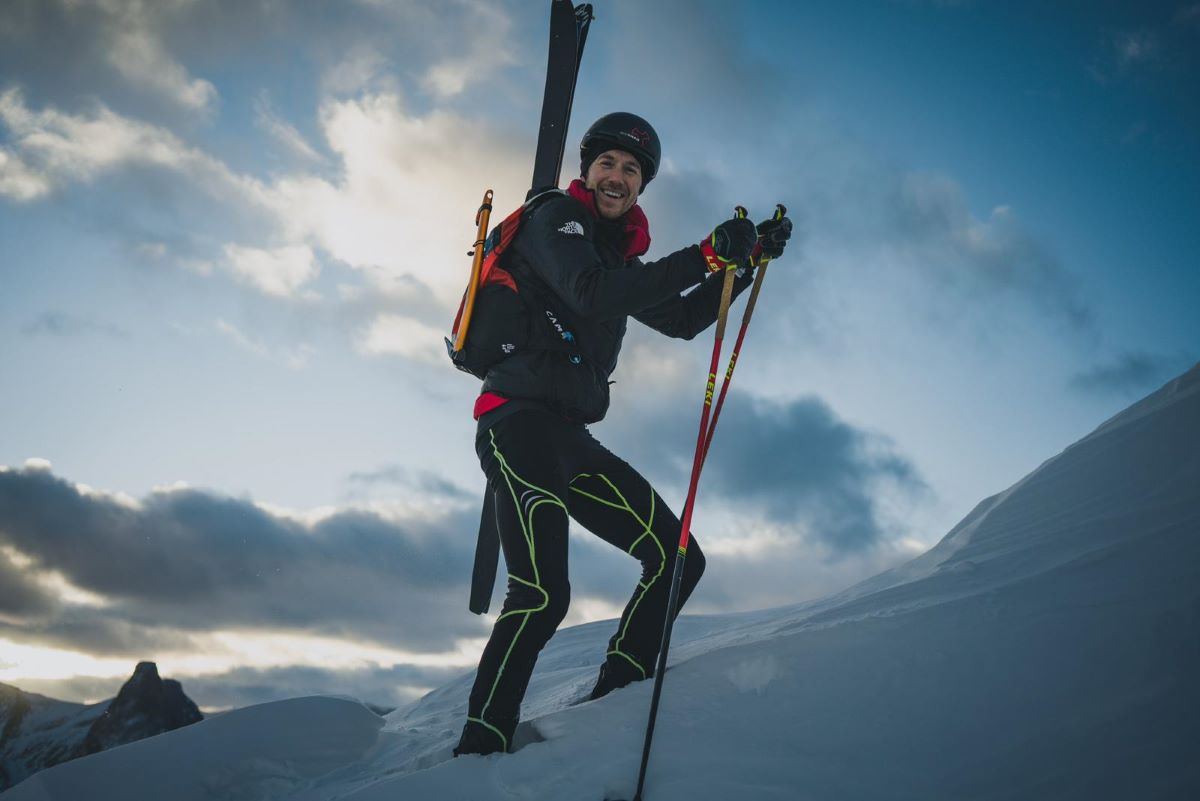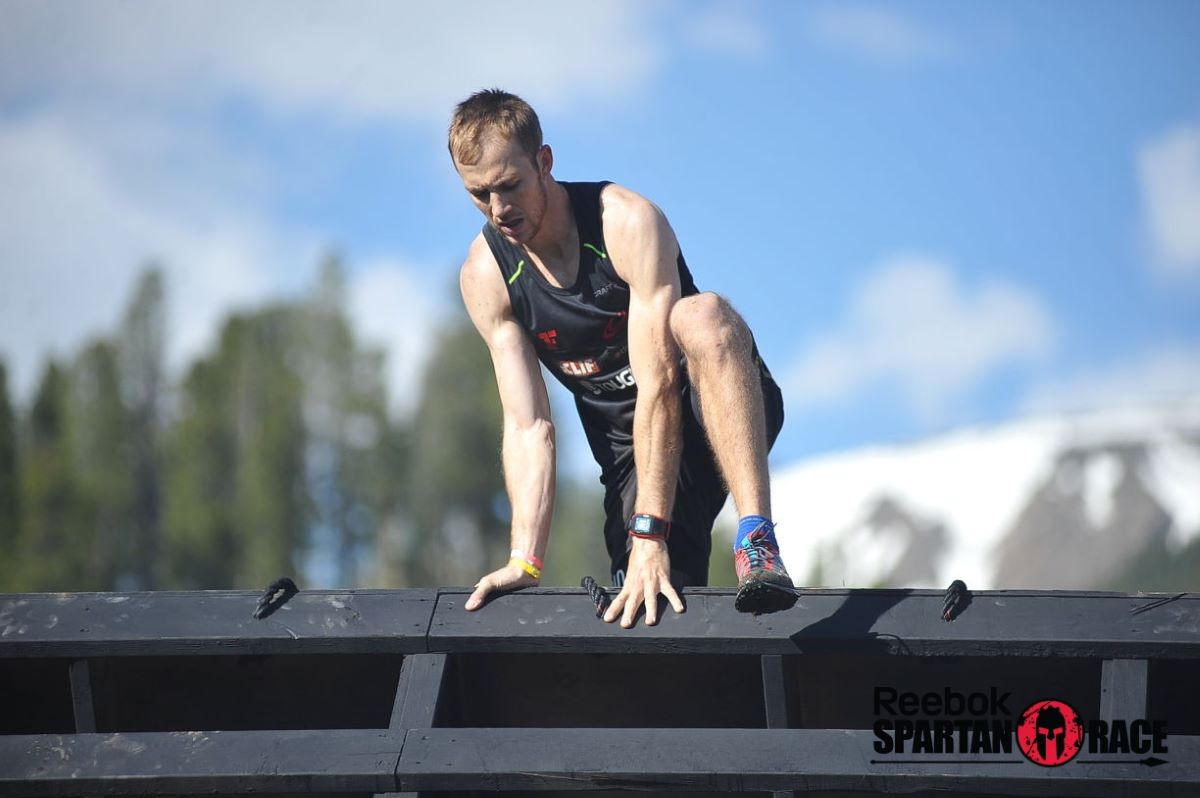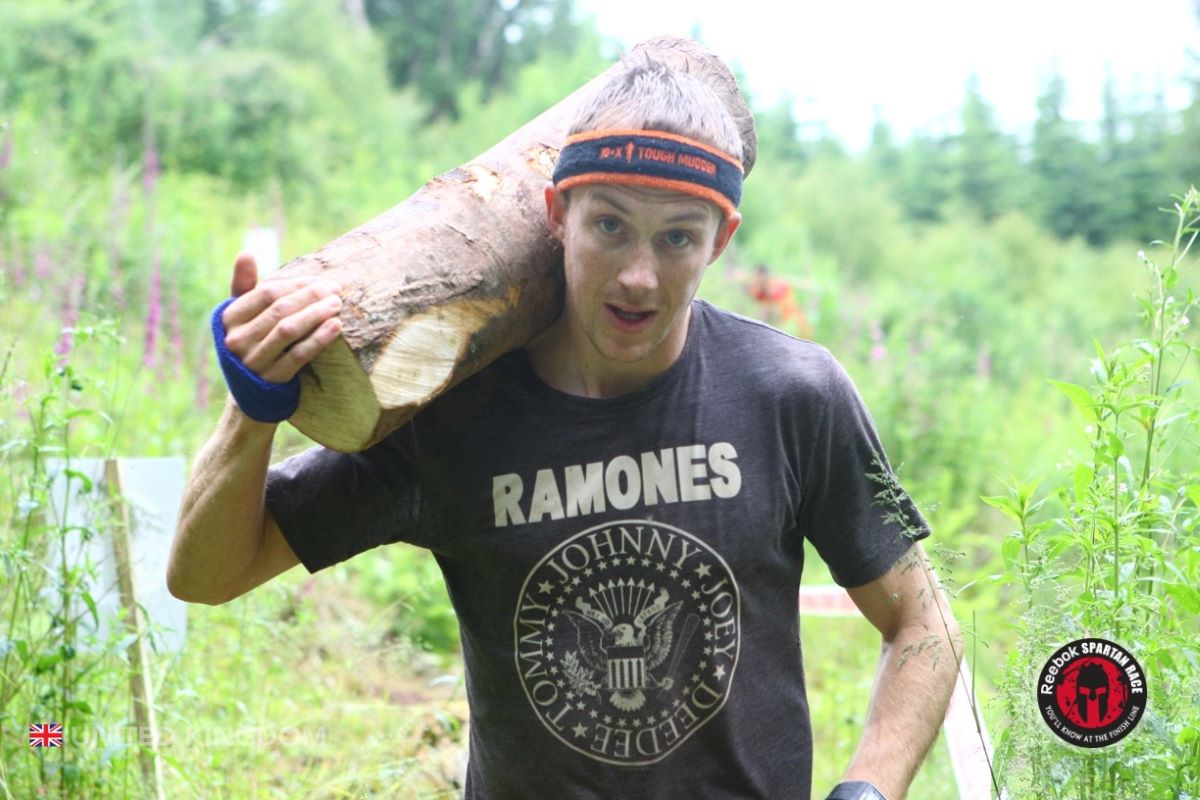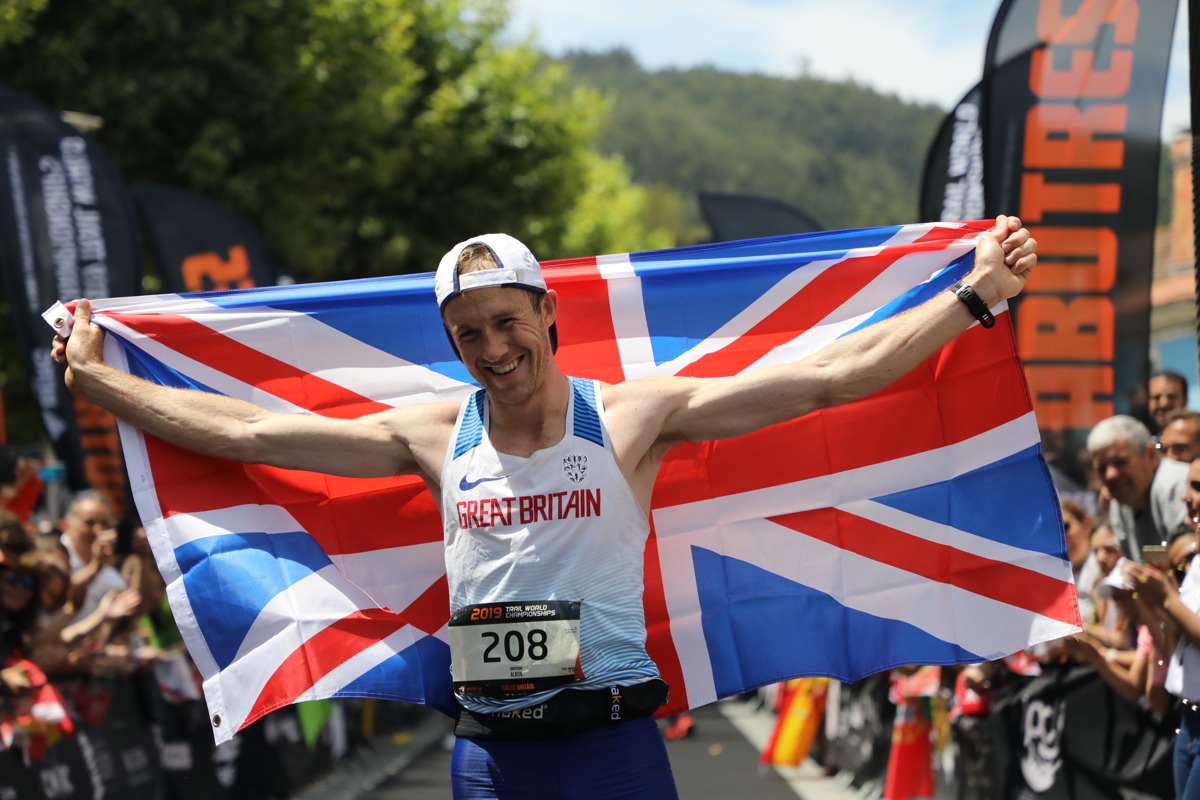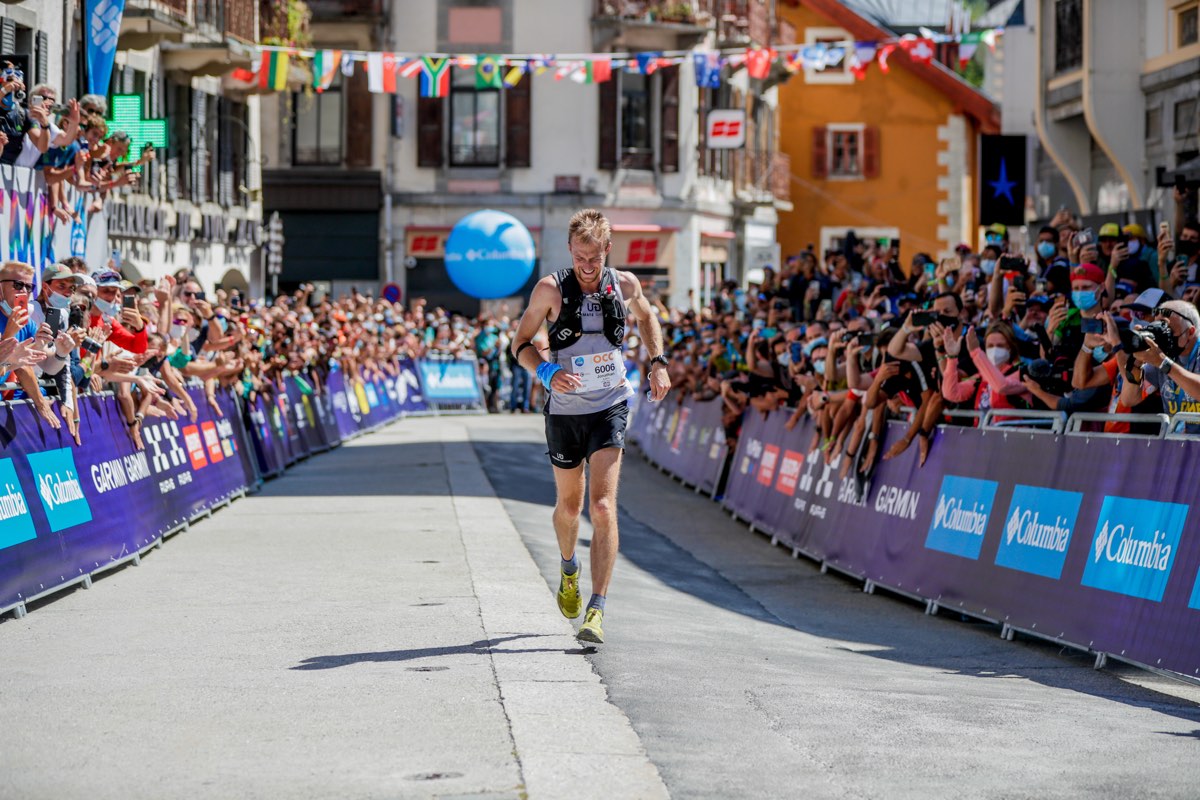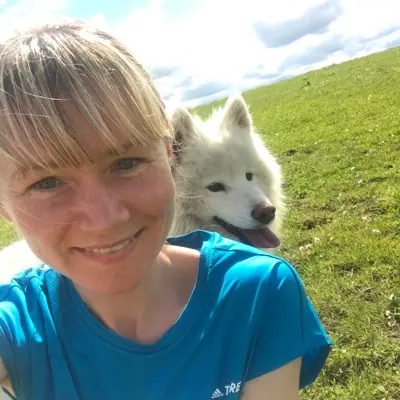Jon Albon grew up in Great Dunmow in England — a small town, an hour outside of London. The rolling countryside of the south of England is far removed from the fell running scene in the north of the country, and Albon found his way to the mountains later in life — thanks in no small way to his marriage to Norwegian mountain runner Henriette Albon.
The couple now lives in Norway, where Albon has adapted to a different way of life and now integrates a ski season into his training. The pair operates a coaching business alongside their own racing and Albon, who has just turned 34, has already packed in a fascinatingly diverse career.
Jon Albon wasn’t a runner in childhood, and instead his first sport was roller hockey, something he competed at from age 10 through to his early twenties. After completing university, he moved to London where he found work as a building surveyor working on the London Underground transit system. While in London, he said, “I gradually quit hockey and I knew I needed to do something to keep fit. Running became a way to get to and from work and my then girlfriend, now wife, introduced me to things like orienteering.”
Instead of going down the road running route like many urban runners, Albon was always drawn to more strange and interesting pursuits, and said: “The first real races that I started doing were obstacle course races — Spartan and things like that — because it seemed like a fun challenge and full body fitness, not just running.” He went on, “That sport grew as I was growing as an athlete.”
At this stage in his career, Albon was focusing his competitive energy on obstacle course racing, with trail running bringing up the rear, as more of a fun hobby. In this spirit, he traveled to a number of U.K. trail races that piqued his interest or were in locations that he wanted to visit.
Although still racing mostly shorter distances, he took on two U.K. ultramarathons in 2014, winning both. One was the popular 74-kilometer 10 Peak ─ The Lakes Long Course in England’s Lake District. He said:
“I just wanted a challenge and, also, I’d never been to the Lake District before. I’d read ‘Feet in the Clouds’ and I knew there was this whole history, and I had a lot of respect for fell runners. And I figured if I’m going to go up there to do a race, I should do one where I’ll get to see pretty much most of the Lake District in one go.”
This same curiosity also brought him to race the iconic Man V Horse in Wales. He said: “It was really fun, and actually the year I did it there was some really good competition, some past winners. I was just on a high and managed to pass everyone, but then soon realized that to actually beat the horse it really depends on the distance of the course that year, and the temperature and everything. So it was fun to actually beat all the humans, but there was no way I was beating the horses that year. And I also got a bit lost, so that didn’t help!”
In 2014, Jon and Henriette moved to Norway where they still reside, and it was here that his running transitioned from hobby to career. He said, “That year [2014] I had done a lot of obstacle course racing and I won quite a few races. And then when I moved to Norway, I got this opportunity to go out to the Spartan World Championships in the U.S. So that was my first international race. I went out and did that and somehow magically managed to win.”
Albon had been struggling to find work in Norway and said, “I think I got about $15,000 for winning that race. And then I was invited back out for the independent Obstacle Course Racing World Championships, and I won that as well and I got maybe $10,000 for that!” Thus, quite accidentally, in the midst of trying to find a regular job, racing presented itself as a way for Albon to earn a living while finding his feet in a new country.
During his first year in Norway, in between racing the Spartan World Championships and the Obstacle Course Racing World Championships, Albon found himself on the start line of his first skyrace. He said, “One of my sponsors asked me, did I want to go out to the Limone Skyrace. It turned out Limone was the final in the Skyrunner World Series that year and probably the most competitive skyrace there would be that year, and I came 14th and was exceptionally disappointed in myself!”
Albon’s sponsors and others made him see that he had done very well, given the standard of competition and his still modest experience in the mountains. He added: “Turning up and trying to race people like Kilian [Jornet] was quite special. So, the next year, obstacle course racing was how I was earning my living and skyrunning was how I was challenging myself as an athlete.”
In 2015, Albon headed to the northernmost point of his now home country to take part in the iconic Tromsø Skyrace, which marked a turning point in his skyrunning career. He said: “I think Tromsø was the first skyrace I actually won. And before I did it I was adamant that I didn’t have the right experience and shouldn’t be there. Kilian [Jornet] gave the pre-race talk and said, ‘This is dangerous, that is dangerous.’ … I turned to my wife and said, ‘I shouldn’t be doing this, I don’t have the right experience.’ And she said, ‘Well if you get nervous you can just turn around.’”
In dreadful weather conditions, Albon found himself to be more comfortable with the wet and slippery Norwegian mountains than a lot of the other international runners, who were perhaps more accustomed to dry and rocky terrain. He ran steadily in about fifth place, before climbing up the field, and passing a runner he later discovered was champion Spanish skyrunner Luis Alberto Hernando, to take the lead and ultimately win the race.
It was a huge confidence boost for the humble-to-a-fault Albon, who said: “That was when I suddenly realized that maybe I was quite good at skyrunning as well. And then to meet Kilian and Emelie [Forsberg] and win their race — that was a course that Kilian put together and that was what he considered purist skyrunning. So, to think that I didn’t just win a normal skyrace — I won one that the best athlete in the world thinks represents what skyrunning should be — was kind of a kick.”
Tromsø became a firm favorite for Albon, and a race he was drawn back to year after year — taking the win on four occasions.
Albon, like many others, felt that skyrunning became a little less competitive and diluted in the years that followed his initiation at the discipline. He said, “I definitely feel like I had a bit of an easy run into the skyrunning world, because the Golden Trail World Series was coming about and it seemed like skyrunning was dying down a little bit, which has been a running theme for the last years.”
He went on to win the Skyrunner Extreme World Series and the Skyrunner Ultra World Series, but felt that the dividing of the discipline into the various classifications (Extreme, Classic, and Ultra) was detrimental to the sport, as it ultimately diluted the competition.
In 2018, Albon was selected to run for Team Great Britain at the Trail World Championships — the 85k race at Penyagolosa Trails, Spain. Although already a world champion obstacle course racer and skyrunner, Albon was still relatively green to racing ultra distances. He said: “I was so out of my depth … I still didn’t really know how to train … I didn’t really know how to peak my shape [fitness] specifically for an event, so I don’t think I had the best preparation.”
Although he didn’t feel overly satisfied with his performance, Albon still placed fourth, just behind teammate Tom Evans, and said: “I certainly learned a lot and it made me want to go back and do the Trail World Championships again. I learned a lot and I did a lot of research. My wife helped, and together we came up with a training philosophy, and I went back the next year and won.”
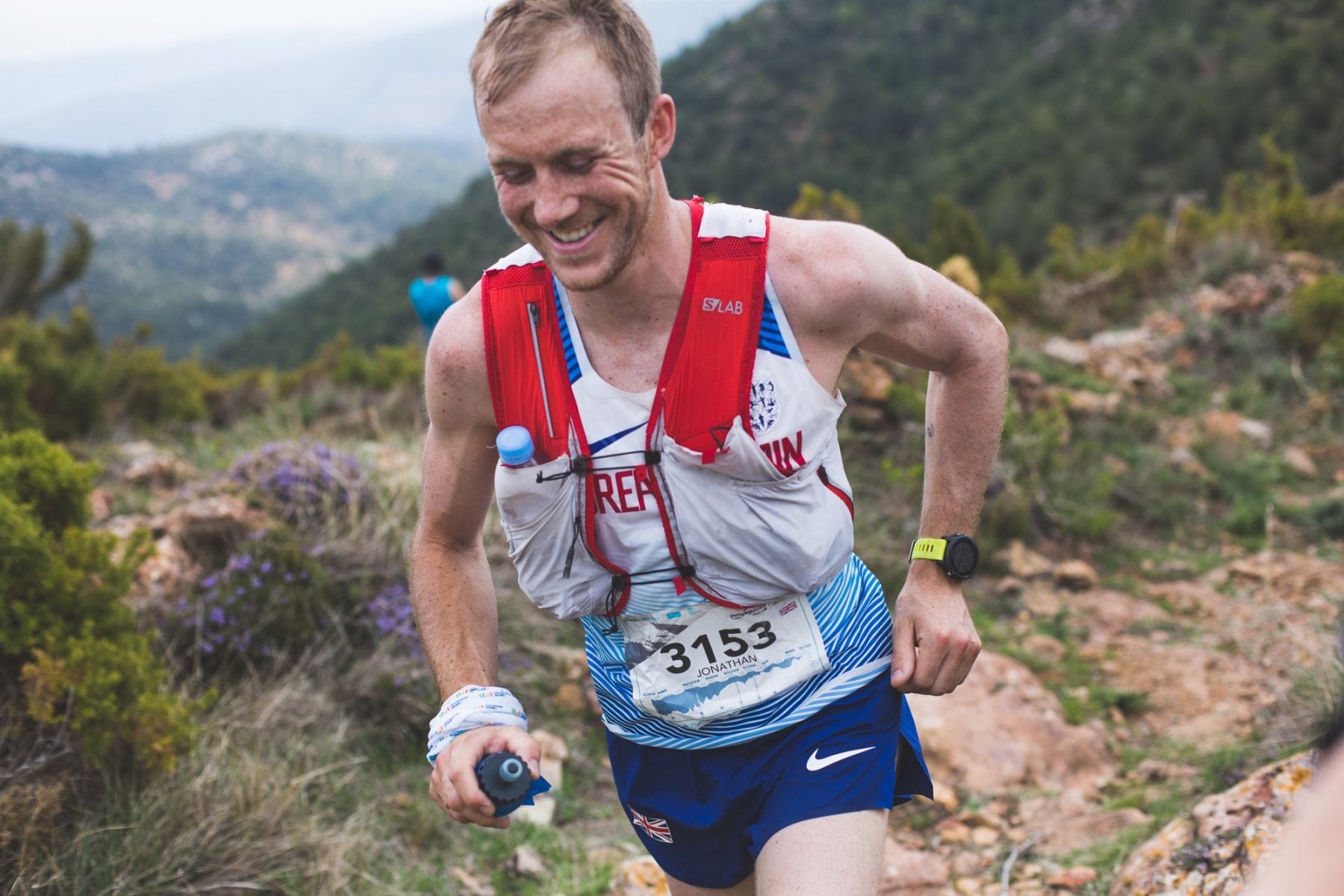
Albon on his way to fourth place at the 2018 Trail World Championships, to help the Great Britain men win a team silver medal. Photo: iRunFar/Kirsten Kortebein
One change Albon introduced was to periodize his training in the build-up to a goal race. He would start by building a strong aerobic base, with greater focus on more race-specific elements in the weeks closer to the event. He also found that as trail running became more of a serious pursuit, he had to take a step back from obstacle course racing.
As he lightheartedly explained, “Obstacle racing is like being dragged through a bush backward while someone is hitting you with a baseball bat — it’s not good for your body!”
The 2019 Trail World Championships in Portugal were run over a shorter distance — 44k, which was closer to Albon’s comfort zone. He said: “The course I guess suited me. I’d had a poor race in Transvulcania some weeks prior, but I think that stood to me and I managed to get in some good weeks training and get it all together in time for the Trail World Championships.”
Although Albon has developed a strong affinity with racing the Trail World Championships — he placed third in the 38k short trail in Thailand in 2022 and will be returning to race the marathon-distance short trail in Austria this year — he did stress its limitations as a world champion decider, saying: “It’s just one race. Mountains come in all shapes and sizes, so it’s a bit harsh to say that on this day, on this type of mountain, on this type of trail — you are the best mountain runner.”
Always seeking out the most competitive challenges within his preferred distance range, in 2021 Albon headed to the UTMB festival in Chamonix, France, to race the 55k OCC — setting a massive 17-minute course record. He said, “Me and Robbie [Simpson] ground ourselves to the bone pushing each other along. All three of us in the top three — me, Robbie and Petter [Engdahl] — were all under the course record, but I think me and Robbie really did push each other along.”
Albon partly credits this stellar performance to finally getting to the root of an injury that had troubled him for years. He said, “I had a problem in my foot for four years — two sesamoid bones were cracked, and it was always really painful for many years … then during the COVID-19 pandemic I had an opportunity to have surgery and get it fixed.”
Albon took advantage of the pause in competition in 2020 to recover from the surgery. He resumed training in the winter, and was primed for a great season come 2021, during which he climbed to the top five on the world International Trail Running Association rankings — a ranking system which he sees as a greater measure of a trail athlete’s place in the global pecking order than any individual world championships.
On resolving the injury, he said: “It was a new lease on life. Suddenly I could train as I wanted to train, rather than being limited by the foot thing.”
The following year — coming off a superb win at the 2022 Mont Blanc Marathon — Albon returned to the UTMB festival in France, stepping up to the 100k distance by racing the CCC. This time he placed second to Petter Engdahl, but had a difficult race and it left him questioning whether racing longer ultras was a direction he really wanted to go down. He said: “It turns into quite a negative experience when you don’t feel like you’re racing anymore, you’re just surviving.”
Albon experienced stomach issues during the race and said: “I couldn’t take any gels for a few hours and then I just felt like I was moving so slowly. And I wasn’t prepared to be moving so slowly, but that is ultra racing … Psychologically I wasn’t prepared for that kind of race either, but I think had I been able to fuel properly, I would have been moving faster.”
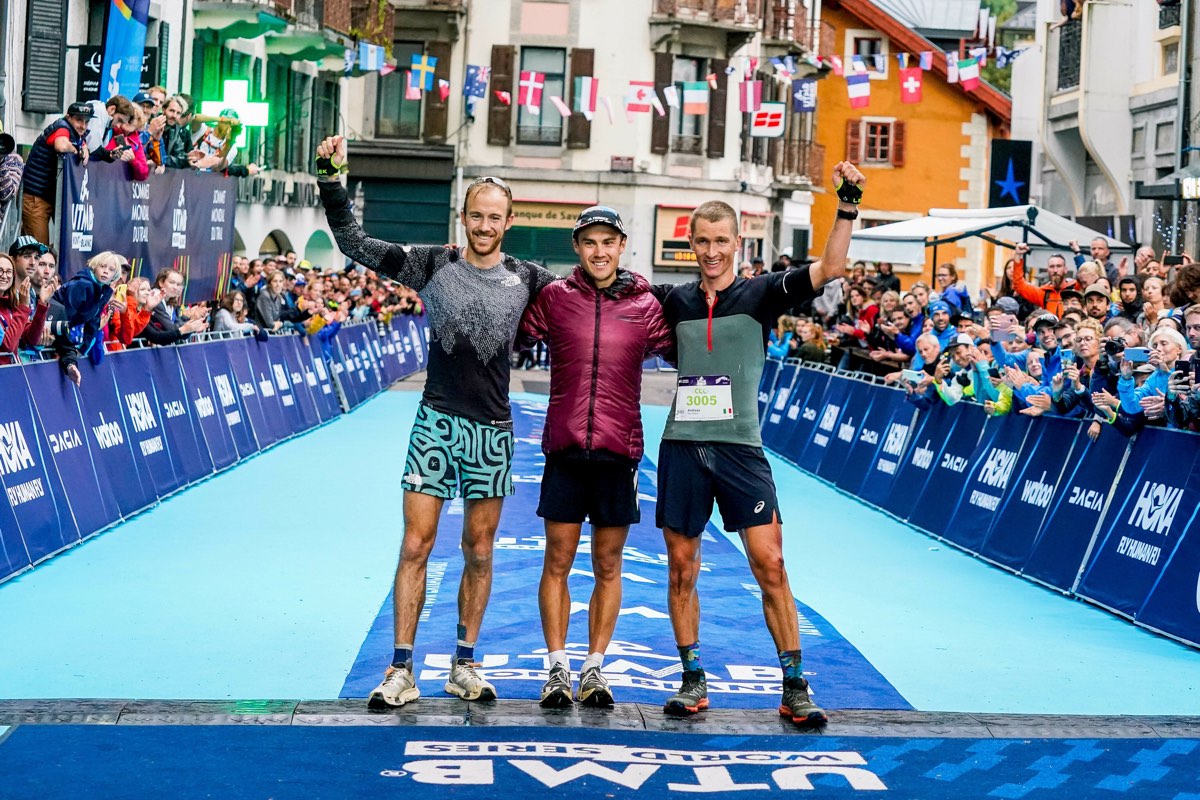
The 2022 CCC men’s podium (l-to-r): 2. Jonathan Albon, 1. Petter Engdahl, and 3. Andreas Reiterer. Photo: UTMB
While previously his plan had been to step up to the 100-mile distance at UTMB for 2023, he has now revised this, saying: “Maybe in a few years, but for now I think I’m going to go back to CCC again and try to do it properly.”
Over the course of our chat, a recurring note was Albon’s continual doubting of his own ability — and his frequent surprise at what he could actually achieve and the level at which he was able to compete. When I pressed him on whether he thought this humility was a blessing or a curse, he said that: “Confidence can make you perform better, but then if you don’t think you’re good it means you’re never going to skimp on training. You’re always going to execute training as well as you possibly can because you believe you need to, and you’re always going to push as hard as you can.”
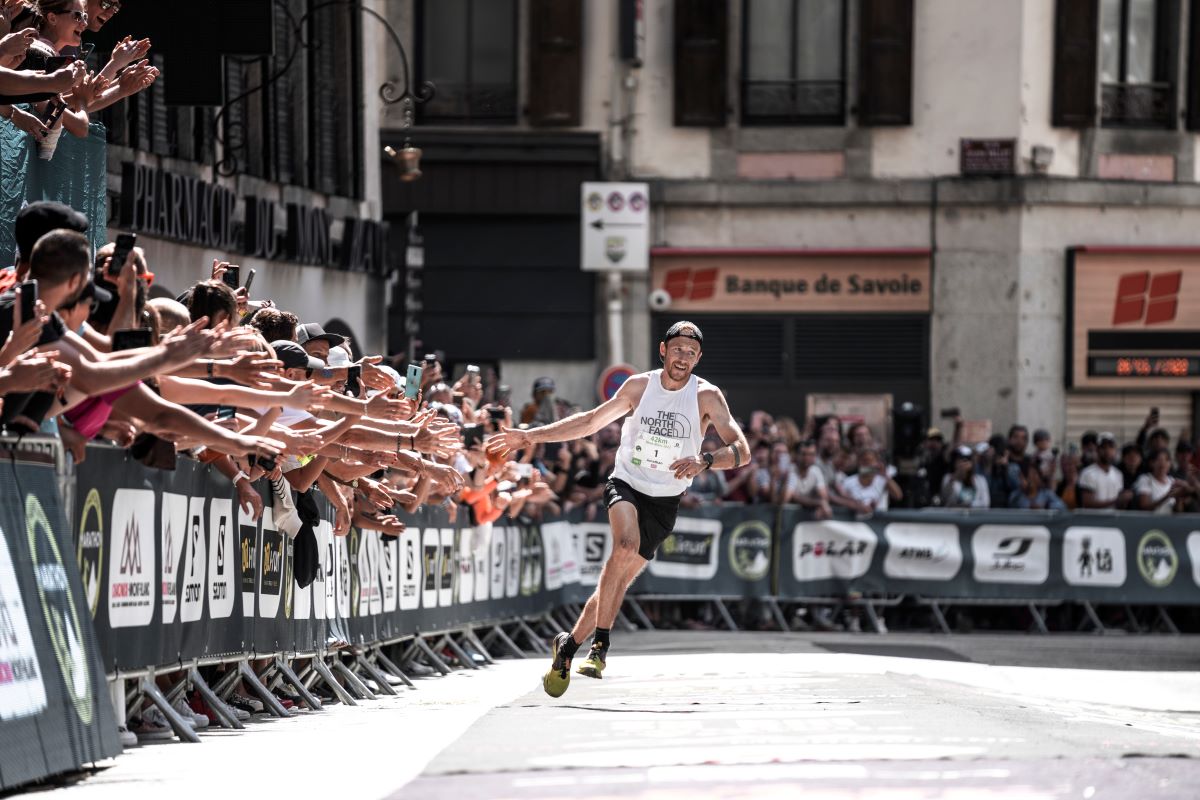
Jon Albon, cruising to victory in the 2022 Mont Blanc Marathon. Photo: Golden Trail Series | Mont Blanc Marathon | Jordi Saragossa
Next up for Albon is the 2023 Zegama Marathon, which he describes as a “crazy experience race, it should be a lot of fun,” before he once again dons the Team Great Britain vest for the Trail World Championships. Finally, he will return to CCC in August. Perhaps the direction in which we will see this multitalented runner go down hinges on how he feels after his second effort at this epic ultra.
Call for Comments
- Have you been following Jon Albon’s career?
- Would you be interested in seeing him take on bigger distances?
